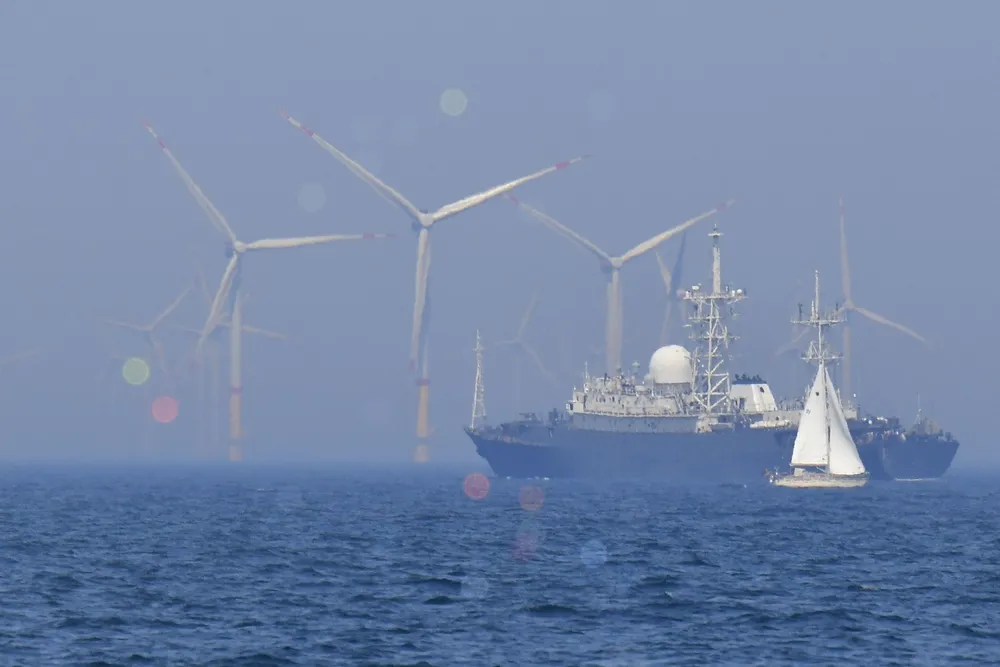Don't deploy military kit at offshore wind farms, warns industry chief
Wind farms at sea should remain civilian, head of German offshore wind group says

The offshore wind industry will do its part to fend off cyber-attacks and report suspicious vessels but “it is unacceptable” that wind farms “are equipped with military facilities”, the managing director of Germany’s offshore wind federation (BWO) said.
“Offshore wind turbine operators operate civilian installations. That's how we see ourselves. We're a utility companies and we're incredibly happy to fulfil this [energy] supply mandate,” Stefan Thimm said at an offshore wind conference last week.
The BWO is representing German offshore wind operators, as well as the wider industry.
Security concerns around offshore infrastructure, such as wind farms at sea, have become increasingly important since Russia’s invasion of Ukraine and various high-profile incidents such as the attacks on the Nord Stream gas pipelines under the Baltic Sea, as well as anchor-dragging incidents.
“We're not military experts, and the technicians we send out there every day aren't soldiers either,” he said.
"Of course, it is unacceptable for our generation plants to be equipped with military facilities that ultimately lead to an armed conflict.
“The monopoly on the use of force must always clearly lie with the state.”
The offshore wind sector already today is making its contribution to security by fending off cyberattacks every day, Thimm added.
“And, of course, our technicians also report to the situation centre when ships are spotted that don't belong there. All of this happens, but within the scope of civilian duties,” he said, while it remained the responsibility of the state “to protect critical infrastructure accordingly, also with its monopoly on the use of force.”